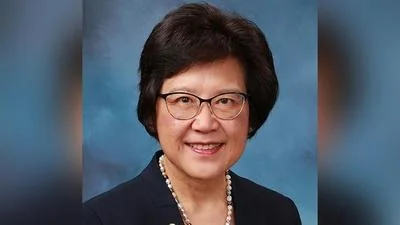University of Illinois, College of Veterinary Medicine issued the following announcement on July 15
When Courtney Wangler was invited to work in the research lab of Dr. Jim Lowe, associate professor in the Department of Veterinary Clinical Medicine, this summer, she didn’t know that she’d be generating the funding for her project.
Courtney Wangler was successful in competing for a research fellowship from the Foundation for Food and Agriculture Research.
However, the rising second-year veterinary student soon found herself taking on a project with funding potential—sequencing the genomes of the two types of swine flu—and applying for a fellowship.
With guidance from Dr. Lowe and Dr. Suzanna Storms, a teaching assistant and PhD student in his lab, Wangler worked with the University of Illinois Grants and Contracts office to develop her application to the Foundation for Food and Agriculture Research.
The Foundation for Food and Agriculture Research, or FFAR, funds research that addresses food- and agriculture-related problems. Through its Veterinary Student Research Fellowship, 15 veterinary students a year are awarded a $10,000 stipend and paired with a research mentor.
Wangler’s project will have direct benefits to pork producers for maintaining herd health.
Groundwork for Strain-Specific Vaccine
“There are two antigenetically separate strains, so a vaccine for one swine flu virus will not provide immunity against the other,” explains Wangler. “The objective of my study is to develop PCR primers for each virus to bind to very specific antigenic sites so the two strains can be distinguished based on their antigenicity.”
Eventually these primers will be incorporated into a clinical test that can rapidly determine the strain of swine flu so a vaccine can be made for the specific strain in a given herd.
“Right now my work includes designing my PCR primer and prepping samples of the viruses we are using for the study,” says Wangler. “A lot of my time this summer is spent studying the topic, then in the lab growing cells, inoculating them with our chosen virus, and extracting the RNA from the cells to then run PCR reactions.”
Busy Summer, and School Year
While she spends most days working on her research project, Wangler also works under teaching instructor Dr. Ben Blair for Carthage Innovative Swine Solutions through the University of Illinois and is an emergency technician at the Veterinary Teaching Hospital’s Small Animal Clinic.
She is involved in several clubs at the College of Veterinary Medicine, including Production Medicine Club, the Illinois student chapter of the American Association of Equine Practitioners, Theriogenology Club, and Surgery Club.
“The best part of vet school extracurriculars is the hands-on experience you gain, whether that be palpating cows or caring for newborn livestock,” she says.
The research, work experience, and club activity are all geared toward her career goal to specialize in large animal medicine back in her hometown of West Branch, Mich. She wants to be able to help both producers and pet owners provide care to large animal species.
Wangler is grateful to her family and friends for “helping her through the crazy first year of vet school”—always challenging, but even more so during the past pandemic year. She’s also thankful for Drs. Blair, Lowe, and Storms for their mentorship as she explores research opportunities.
Original source can be found here.





 Alerts Sign-up
Alerts Sign-up